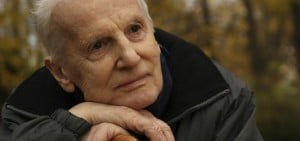A friend recently asked a question that many of us are asking these days. He wrote:
“I’m torn between two ideas: ‘Lance Armstrong is the greatest fraud in the history of sport’ AND ‘Look at all the lives he’s saved with his Livestrong foundation.’
Does the end justify the means?”
To ask the question, “does the end justify the means?” admits that something ethically, morally, or legally wrong took place. The question is moot if the means were morally acceptable.
From a philosophical, biblical, and societal standpoint, seemingly positive ends NEVER justify obviously morally negative means.
Some will object, presenting a scenario such as Bonheoffer trying to assassinate Hitler in order to save millions of lives. Others might cite Lance Armstrong using his dishonestly earned platform to support cancer patients & research as an example.
Let’s consider three aspects of this situation: The morality of the action (means), the morality of the person carrying out the action, and the morality of the outcome (end).
Lance’s action of doping in order to win is clearly immoral, and so is Lance for doing it. (This isn’t suggesting that Armstrong is as immoral as he could be, or that he doesn’t have morally positive qualities. But a person who does something immorally, is immoral – as much as we’d like to be disassociated from our actions, our actions point to who we truly are. If I cheat on my taxes, I am a man who cheats on my taxes.)
The hard question, however, is: Is the outcome of advancing cancer research through winning the Tour de France by cheating morally acceptable, if it was accomplished by an immoral set of behaviors by an immoral person?
No, I don’t believe it is. And to see how the answer must be no, we need to pull back and look at the philosophical & societal impact of saying yes. What kind of society would we be advancing if we encouraged people to cheat, lie, and do whatever drugs are necessary in order to accomplish good things?
Kant’s Law of Universality helps us here: “Act only according to that maxim by which you can at the same time will that it should become a universal law.”[1]
If, as a society, we DO decide that we want immoral means to justify what we perceive to be good outcomes, then to be consistent, we must not punish, penalize, or remove medals from people who do bad things to accomplish what we deem to be good outcomes. But as a society we do punish drug abuse, lying, and cheating in professional sports. Appropriately so. And what this says about us is that we have already ruled on this issue: Lance Armstrong’s ends DO NOT justify his means.
An Important Nuance: We can disapprove of the means, but still appreciate aspects of the person & and the end.
We don’t need to throw the proverbial “baby out with the bathwater.” All people are flawed. All people make mistakes and have various moral failings (not all sin is equal in quality or kind). All people are complex, and their contribution needs to be considered holistically. This is certainly true for Lance Armstrong.
Many of the people who have made significant positive contributions to our society were complex, flawed, paradoxical people. Their ends do not justify their means, but that doesn’t mean we can’t feel appreciation them for other aspects to their contribution.
A very personal example for me is Dr. Martin Luther King Jr. Dr. King probably cheated on his wife, and perhaps even on his doctoral dissertation. These are immoral acts—that are in no way made “acceptable” because of the sum of what Dr. King accomplished—yet Dr. King rightly belongs in the history books as one of our nation’s greatest heroes for his desires, commitment, and work toward civil rights. There are few people I admire more than Martin Luther King Jr., but his contribution is complex, and I have to hold various opinions and feelings in tension as I view him as a person.
Personally, I’m done admiring Lance for his accomplishments in sports. Yet, I’m deeply thankful for his desire to support those who have cancer. And I feel thankful and supportive of Livestrong. Armstrong is a complex figure for me, which makes it hard for me to place him neatly and cleanly into any one category. But I’m ok with that. I’m sure others feel that way about me.
Btw, here’s another family who is fighting cancer through all sorts of morally excellent and appropriate means. Check out & join Team Jack!
[1] (Foundations of the Metaphysics of Morals. Translated by Lewis White Beck. Library of Liberal Arts, 1959. 421/39)











